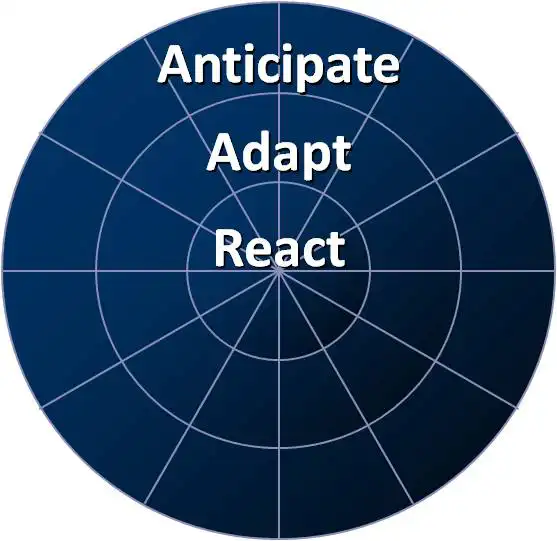Think into Your Future
You are going to spend the rest of your life in the future. Maybe you should think about it.
You are facing four kinds of futures
You have a known future that is found in demographics and recurring cycles. For example, you know that the demographics of the United States is slowly changing, but in a very clear way. Collectively, we are getting older (like Japan and China), less “white,” and less willing to engage in compromise. You may not like this, but that’s what’s happening right now.
You have a hazy future found in the trends and fads affecting us. For example, explosive growth of social media seems to be a trend that is firmly established in the minds and actions of Gen-Z, but the future growth rate is quite hazy. For example, Facebook went from being the cool place to hang out to being ignored because of all the older people (Boomers) using it.
You have an either / or future that can be seen in the deliberations surrounding laws and regulations. For example, either a federal right to life law will be enacted or it will not
Finally, you are faced with bolts-from-the-blue events that may be part of your future. Some of them can be anticipated but not accurately predicted (e.g., a massive west coast earthquake). Others are in the current realm of science fiction (e.g., sentient life on another planet).
Think across time
You only have so much time in your day. How do you use it?
Consider the metaphor of a mental radar screen. Items in the center are impacting you now; whereas items on the edge are “far away” (in the future) and you have time to respond.

But nothing is static – keep asking “What’s on the edge and moving in fast?
Most of your time is consumed with the need to react to telephone calls, e-mails, text messages and all the other urgent (but not always important) interruptions. You are often stuck in the here and now, a.k.a. the “reaction zone.”
That said, a reality is the need to balance both the long-term and the short-term. Ignoring one to satisfy the other is a prelude to inevitable failure, so you need to take the time to consider those things to which you must adapt, anticipate, recognize.
We need to adapt to the trends that are important, unstoppable, and currently underway. For example, the Boomer generation is leaving the workforce while the Gen-Zs are moving more and more into leadership positions. And Gen-alpha is entering.
Finally, realize that much of our future lies in the imagination of inventors and entrepreneurs. They shouldn’t have all the fun. You had a great imagination when you were six years old. What does your six-year-old self say about the future. You just might be right.
You need to get better at “thinking across time.” Spend some dedicated time discussing the zones of your mental radar screen with friends, family, and co-workers.
See if the following questions and comments help you get ready for your future.
Consider the Reaction Zone
- What are you ignoring right now that has the potential to hurt you?
- What are the potential future consequences (intended and unintended) of a decision you are about to make?
- What are some potential consequences of another persons’ decisions? What should you do?
Consider the Adaptation Zone
- Name a trend that’s significant and irreversible. How will it affect you? (E.g., vaping?)
- What makes you slow to change? How can you become more responsive?
- Name an emerging trend that could be a “game changer” for you?
Consider the Anticipation Zone
- Name three things in society that are new and unexpected. (E.g., speed of AI into businesses.)
- Name three things you expected to see by now but have not. Why did they not appear?
- What should you do to better anticipate the future?
Warning:
Don’t fall into the trap of thinking “I’m too busy to think about the future.” If you want to be ready for your future, you must spend some quality time thinking about it. Otherwise, you will spend your life in the Reaction Zone.
Find a way to free up time: delegate, create and use a “stop-doing” list, or just say no to activities that hurt your ability to be ready for your future.
Never miss out!
Get an email update every time I publish new content. Be the first to know!
